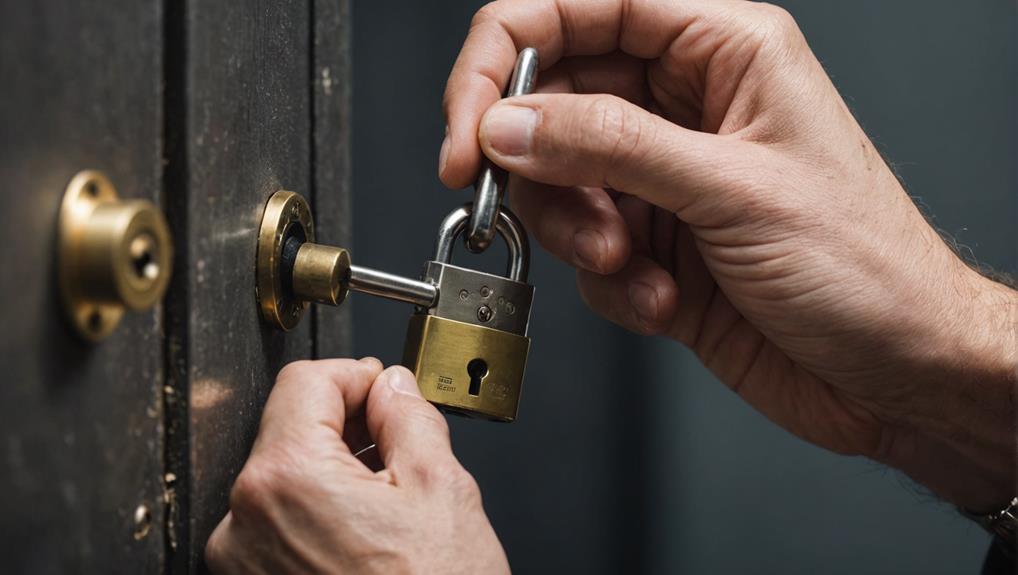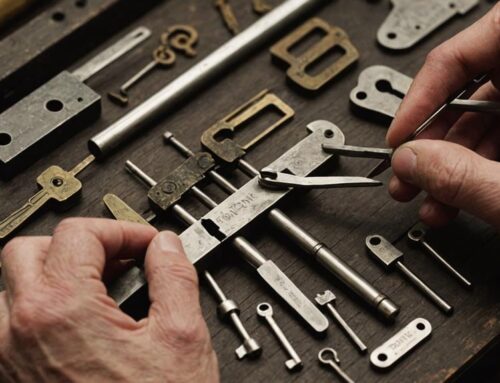To practice ethical lock picking safely and legally, it is crucial to know the laws and regulations in your area. Understanding the boundaries set by authorities helps you avoid legal issues and respect others' privacy and property rights. Using proper tools and techniques is important for successful and non-destructive lock picking, enhancing effectiveness and preserving lock integrity. Before practicing, always obtain explicit permission from the lock owner to demonstrate ethical behavior and comply with laws. Keeping your skills confidential and secure, along with practicing ethical responsibility, reinforces integrity in the locksmithing profession and promotes responsible engagement. Explore further for extensive guidelines on ethical lock picking practices.
Key Takeaways
- Familiarize with local laws to ensure compliance and avoid legal issues.
- Prioritize safety with proper tools and techniques for non-destructive entry.
- Obtain explicit permission before practicing on any locks.
- Maintain confidentiality of lock picking skills to prevent misuse.
- Uphold ethical responsibility by using skills only for lawful purposes.
Know the Laws and Regulations
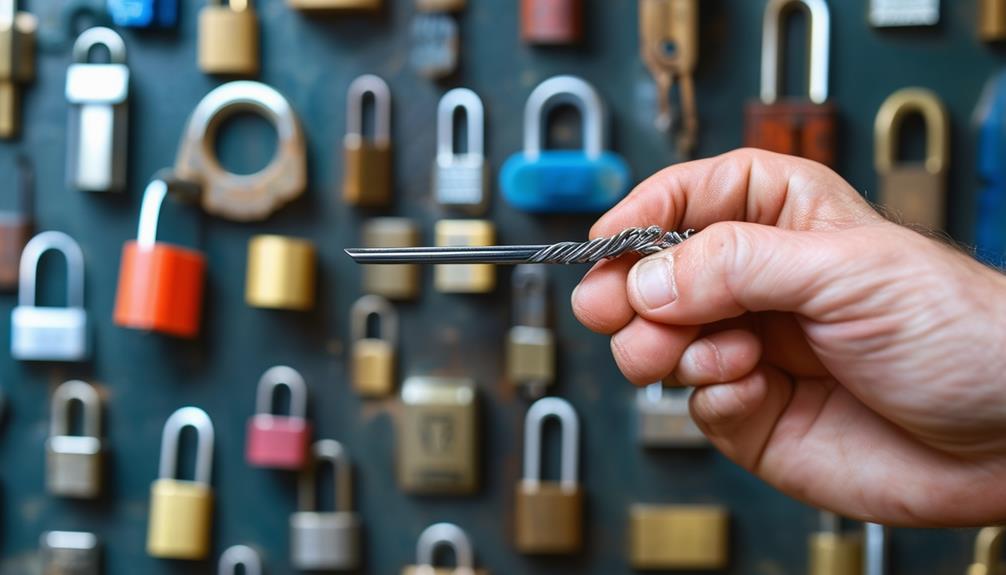
Before starting any lock picking endeavor, it's vital to familiarize yourself with the laws and regulations governing this practice in your region. Each state in the U.S. has its own specific rules, and understanding these can help prevent legal issues down the line.
Legal lock picking involves understanding the boundaries set by your local authorities to guarantee you're operating within the confines of the law. For a thorough overview, refer to lock picking regulations by state.
Ethical considerations also play a significant role in responsible lock picking practices. It's important to respect the privacy and property rights of others when engaging in lock picking activities.
Use Proper Tools and Techniques
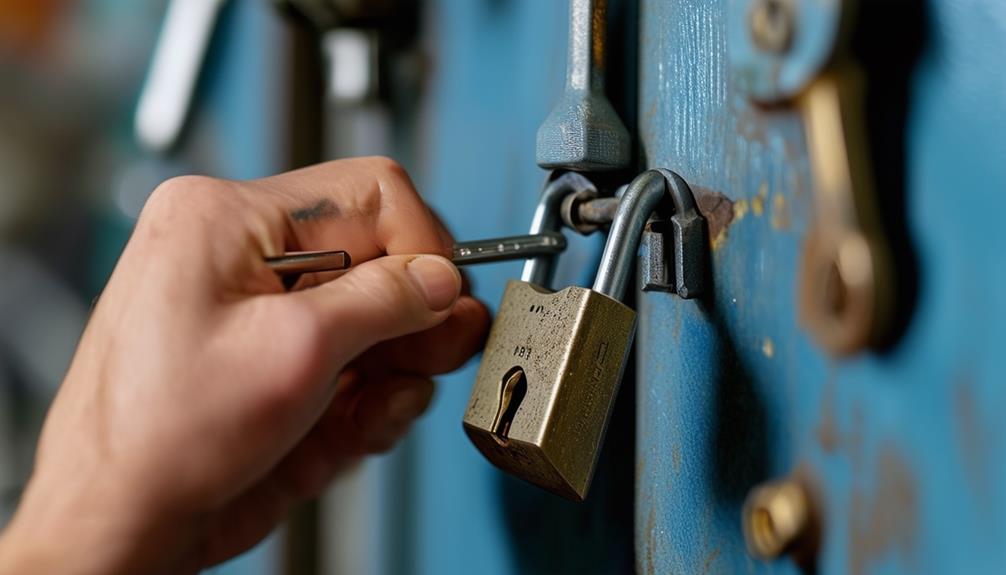
To successfully navigate the art of lock picking, employing the appropriate tools and techniques is essential. When engaging in ethical lock picking, it's vital to prioritize safety and responsibility throughout the process.
Using safe lock picking methods not only guarantees your safety but also helps in preserving the integrity of the lock you're working on. Understanding various non-destructive techniques can greatly enhance your approach.
Responsible lock picking involves using tools that are designed specifically for this purpose. Avoiding makeshift tools or improper techniques not only enhances your success rate but also prevents damage to the lock.
Quality lock picking tools are crafted to be precise and effective, making the process smoother and more efficient.
When practicing ethical lock picking, always opt for tools that are suitable for the type of lock you're working on. Using the right tools minimizes the risk of accidents and maintains the lock's functionality post-picking.
Obtain Permission Before Practicing
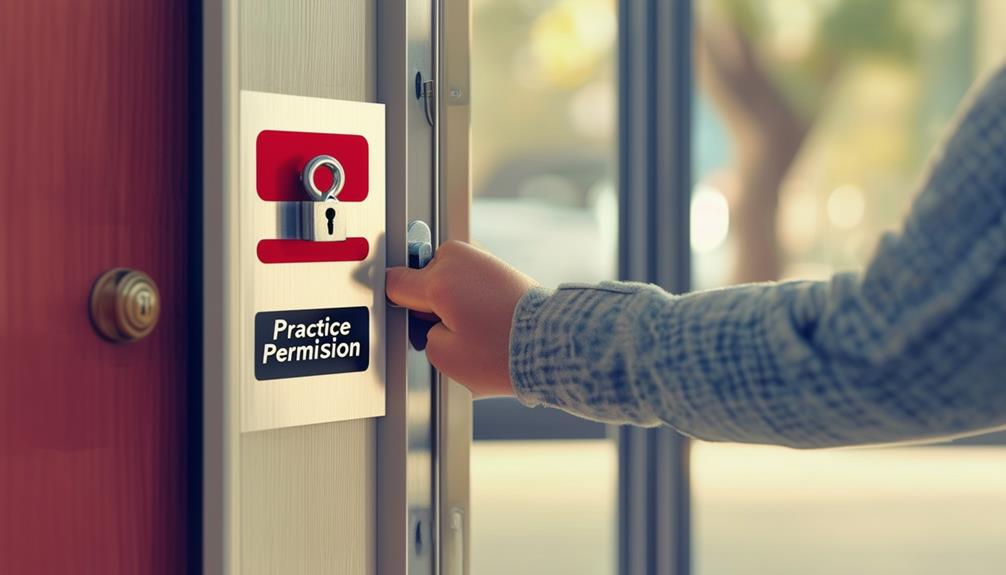
Prior to engaging in any lock picking practice, it's essential to obtain explicit permission from the owner of the lock. Respecting the property rights of others is a fundamental aspect of responsible locksmithing. Understanding the legal and ethical considerations of your craft can help you navigate potential pitfalls, as outlined in ethical practices.
By seeking permission beforehand, you demonstrate ethical behavior and uphold legal standards in lockpicking.
Lockpicking guidelines stress the importance of obtaining consent to avoid any potential legal issues in lockpicking. Unauthorized entry into someone else's property, even for practice purposes, can lead to serious consequences. Always remember that picking a lock without permission can be considered illegal in many jurisdictions.
As a responsible locksmith, it's vital to prioritize integrity and professionalism in your practice. By obtaining permission before honing your skills, you not only comply with legal requirements but also build trust with clients and the community.
Keep Skills Confidential and Secure
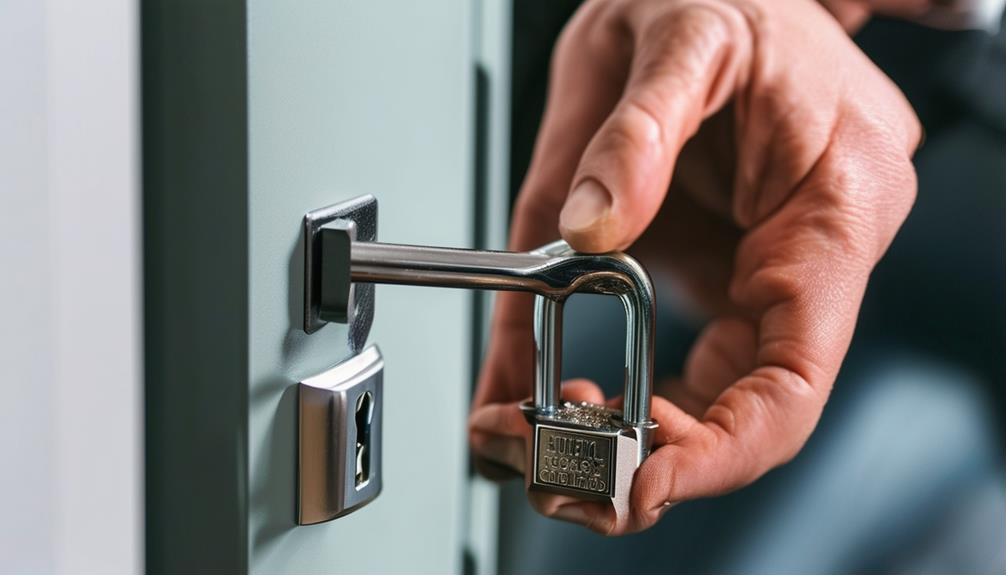
Obtaining permission before practicing lock picking not only aligns with ethical standards but also sets the stage for the next essential aspect of responsible locksmithing: keeping your skills confidential and secure.
When it comes to lock picking ethics, it's important to maintain discretion about your abilities. Sharing your knowledge with unauthorized individuals can lead to misuse and compromise the security of others. As highlighted in ethical considerations, it's imperative for hobbyists to understand the implications of their skills on community safety.
To guarantee safe lockpicking methods, always handle your tools and techniques with care, keeping them out of reach from those who may use them for illicit purposes.
Legal lockpicking tips emphasize the importance of abiding by laws and regulations governing locksmithing practices in your area. By safeguarding your skills and knowledge, you contribute to the integrity of the locksmithing profession and demonstrate your commitment to ethical conduct.
Practice Ethical Responsibility
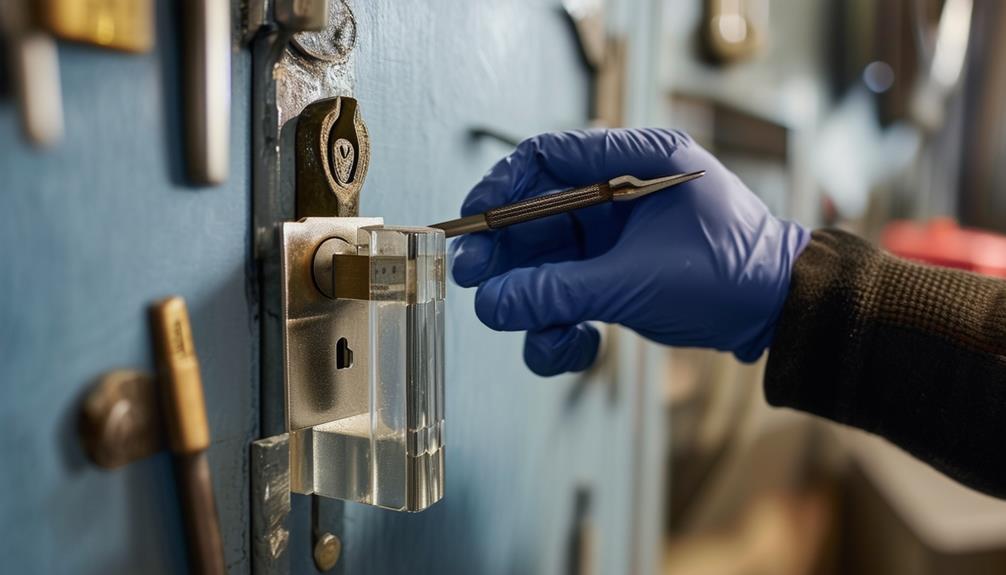
When embracing the field of lock picking, ethical responsibility becomes a cornerstone of your practice.
As you venture into the world of lockpicking for beginners, it's vital to uphold the values of ethical lock sport by practicing ethical responsibility. This entails using your newfound skills responsibly and ethically, ensuring that you only utilize them for lawful purposes and with the explicit permission of property owners.
Understanding the importance of ethical practices can also help you develop a strong foundation in safe lock picking techniques.
As a beginner in the area of lock picking, it's essential to remember that these skills should never be used to engage in any form of illegal activity or unauthorized access.
Frequently Asked Questions
Can Lock Picking Be Used for Illegal Activities?
Yes, lock picking can be used for illegal activities.
It's important to remember that while lock picking skills can be useful for legitimate purposes like locksmithing or in emergency situations, they can also be misused for criminal activities.
Always make sure that you're using your lock picking skills ethically and legally.
Remember, with great power comes great responsibility.
It's vital to respect the law and use your skills for positive purposes.
Are There Specific Age Restrictions for Lock Picking?
When it comes to lock picking, age restrictions vary.
Some communities have specific rules in place, like requiring individuals to be at least 18 years old to engage in lock picking activities.
These regulations aim to guarantee safety and responsibility.
Always check local laws and guidelines before practicing lock picking to avoid any legal issues.
What Should I Do if I Accidentally Damage a Lock?
If you accidentally damage a lock, the best course of action is to contact a professional locksmith for assistance.
Trying to fix it yourself could make the situation worse or lead to potential legal issues.
Locksmiths have the expertise and tools to repair the damage properly.
It's important to prioritize safety and legality in these situations to avoid any unintended consequences.
Communication and seeking professional help are key in resolving the issue efficiently and effectively.
Is It Legal to Pick Locks in Self-Defense Situations?
Yes, it's legal to pick locks in self-defense situations if you're in immediate danger and need to access a secured location for safety.
However, make sure to check your local laws as they can vary.
Always prioritize your safety and well-being, and if you find yourself in such a situation, remember to act responsibly and within the boundaries of the law to protect yourself.
How Can I Ensure I Am Not Violating Someone's Privacy While Practicing?
To guarantee you're not trespassing on privacy while practicing lock picking, take time to track the type of locks you target.
Tailor your training to transparently tackle traditional locks, steering clear of sensitive spaces.
Test techniques with tact, thinking through the tools you use.
Trust yourself to tread lightly, training thoughtfully to tighten your skills without tampering with privacy.
Teach yourself to target transparency, turning away from tricky territory to tackle locks truthfully.
Conclusion
Now that you know the laws and regulations, have the proper tools and techniques, and always obtain permission before practicing, you can confidently practice ethical lock picking. Remember to keep your skills confidential and secure, and always act with ethical responsibility. By following these guidelines, you can guarantee safe and legal practices while honing your lock picking skills. So go ahead, release your potential and make your mark in the world of ethical lock picking!

